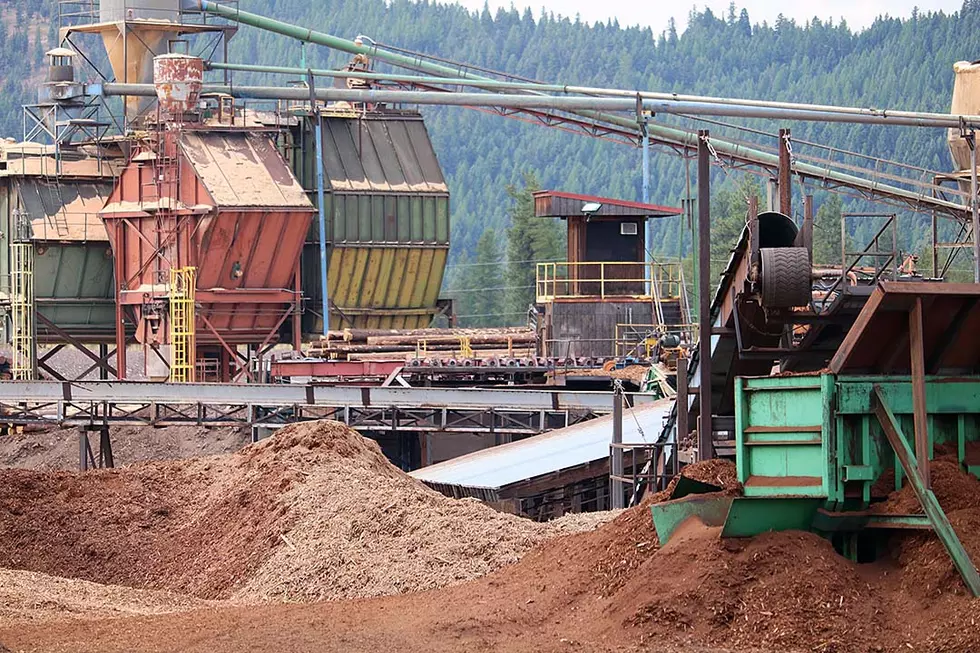
Missoula legislators ask state to help with lumber mill closings
Laura Lundquist
(Missoula Current) With less than three weeks to find a buyer for a Seeley lumber mill, some Missoula legislators are asking the state land board for some leadership in keeping the mill open.
On Monday, three Democratic legislators - Reps. Tom France, Marilyn Marler and Sen. Willis Curdy of Missoula - sent a letter to the five members of the Montana Land Board, asking them to help preserve existing lumber mills after two in Missoula County have announced they’re shutting down.
“Absent a viable timber industry, the ability of the State to manage its lands and produce revenue will be severely compromised. In our view, to allow this to occur without all reasonable efforts to intervene would be a breach of the state’s trust and fiduciary duties to the people,” the legislators wrote.
The Land Board includes Governor Greg Gianforte, Attorney General Austin Knudsen, Secretary of State Kristi Jacobson, School Superintendent Elsie Arntzen and Securities Commissioner Troy Downing.
In mid-March, Pyramid Mountain Lumber in Seeley Lake announced it was closing after 75 years. It accepted its last load of logs at the end of March and will process all the logs in the yard and sell the lumber before it auctions off the mill equipment. Less than a week later, on March 22, Roseburg Forest Products announced that it was closing its Missoula particleboard plant. Between the two businesses, the closures will affect 250 employees.
Although Roseburg Forest Products won’t reopen, the owners of Pyramid Mountain Lumber are considering selling their business instead of shutting it all down. But they have set a deadline of May 15 for any offers to buy. For that reason, the three Missoula legislators are urging the Land Board to quickly “evaluate different strategies for maintaining the existing mill infrastructure in Montana.”
As examples of what could be done, the legislators in their letter point to various tools created by the Montana Legislature to help businesses, particularly in the timber industry. The 2005 Legislature created what is now the Montana Growth Fund, which promotes the retention and expansion of existing businesses. Then following the Great Recession, the 2009 Legislature passed the Wood Products Industry Revolving Loan Program and allocated $11.3 million for timber industry loans.
Rep. Tom France said the state should be involved because the mills support the logging that occurs on state lands. If all the mills fold, the state will have a harder time selling logs to fund the state school trust.
“It’s the land board that’s the day-to-day trustee and I think they need to be leading this discussion,” France said.
In its March 14 press release, Pyramid Mountain Lumber cited financial challenges as one of the reasons for closing. For more than 20 years, the mill has been buffeted by successive financial crises that also plagued other mills across the state. If the state could provide funding, might Pyramid itself consider staying open? Pyramid Resource Manager Gordy Sanders said that would be up to the owners. In the meantime, a number of parties have expressed interest in buying the mill.
The problem is that Pyramid isn’t closing just because of financial issues. As they said in their release, “Among other problems, labor shortages, lack of housing, unprecedented rising costs, plummeting lumber prices, and the cost of living in Western Montana have crippled Pyramid’s ability to operate.”
Providing additional state assistance might help a new owner buy the mill, but it won’t solve the problems of labor and housing shortages and the high cost of living brought on by so many people with outside money moving to the state.
These are the same issues that challenged R-Y Timber in Livingston before fires at the mill sounded the final death knell in February 2023. Then earlier this year, Deer Lodge-based Sun Mountain Lumber, Inc., bought R-Y Timber with the help of a loan from the Wood Products Industry Revolving Loan Program. Sun Mountain is now one of the last surviving mills in Montana.
France said he doesn’t have all the answers, but those issues can’t be addressed unless the mill is secure.
“We need to put our heads together and come up with options and then choose the best of what we need to have if we’re going to keep these smaller mills going,” France said. “You have the immediate Seeley Lake situation, but it’s really yet one more domino in a string of dominos in terms of mill capacity.”
Any buyer is going to need more money than the Wood Products Industry Revolving Loan Program can provide. France said an estimated $50-80 million would be needed to buy out Pyramid Mountain and then upgrade the mill. After that, fewer workers would be needed because a modernized mill would have more automation. So saving the mill doesn’t necessarily mean saving jobs.
Sanders said he doesn’t know what would happen to his employees if the mill was sold. They could get a job with the new company, but upgrading the mill will take time so the question is whether the existing workers could afford to wait. But about 20% of the workers are at retirement age and another 20% isn’t far behind, Sanders said. So a new mill requiring fewer workers wouldn’t hurt many, because attrition would have reduced the workforce anyway.
At this point, it’s all hypothetical unless a solution is worked out by May 15.
Contact reporter Laura Lundquist at lundquist@missoulacurrent.com.
